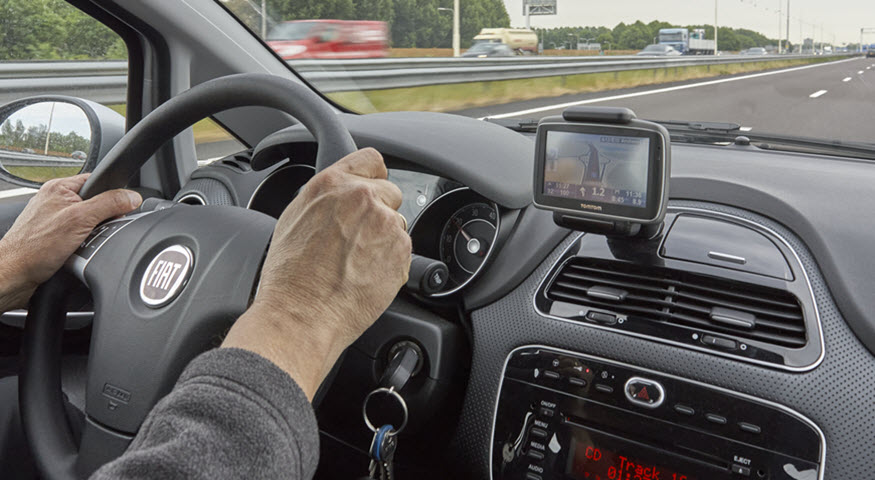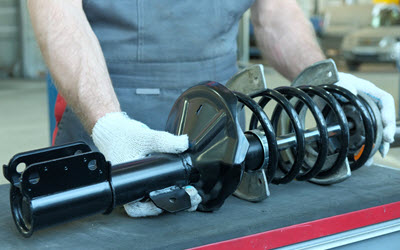
Experiencing vibrations in your Fiat can be both frustrating and alarming, impacting both driving comfort and potentially signaling issues with the vehicle itself. Let’s discuss six of the main reasons for why your Fiat might vibrate. By understanding them better, you'll be better equipped to diagnose any issues accurately and take the measures necessary to resolve them quickly, ensuring a safer journey experience for yourself and others.
1. Wheel and Tire Issues
Wheel and tire issues are one of the primary contributors to vibrations in Fiat vehicles. Several factors could contribute to this issue, such as imbalanced wheels, uneven tire wear, bent rims, or tire defects.
They can even result from factors like poor alignment, no rotation, driving over potholes, or general wear and tear. Ignoring these problems can lead to additional damage being done to tires, suspension system, and other vital components of your Fiat vehicle.
In order to properly address wheel and tire issues, it's essential to schedule regular inspections of both tires and wheels. Check their inflation, undergo rotation, and have their alignment analyzed regularly. If any signs of uneven wear, vibrations, or damage to either wheels or tires appear it is wise to consult a professional mechanic who can accurately diagnose and solve any potential issues that may arise.
2. Worn or Faulty Suspension Components
Unwanted vibrations may also stem from worn or defective suspension components on a Fiat, such as shock absorbers, struts, bushings, or control arms deteriorating over time and leading to an unstable ride. Excessive vibrations experienced when driving over bumpy or uneven roads could indicate that there may be suspension issues present.
Maintaining an annual inspection and maintenance plan for your suspension system is essential to its optimal performance and safety. A qualified mechanic should inspect each component, replacing any worn or damaged ones as soon as they detect them to restore ride smoothness and stability while guaranteeing optimal performance and safety.
3. Engine Misfire or Imbalance
Vibrations may also be caused by engine misfire or imbalance, when one or more cylinders do not ignite properly, leading to an imbalance in power delivery that causes vibrations across your vehicle during acceleration or idle. Ignoring engine misfires may lead to higher fuel consumption costs, damage to catalytic converters, and potentially severe engine damage, which is not something you want!
If your engine misfires or vibrations become frequent, it is wise to consult a professional mechanic immediately. They will conduct an in-depth inspection, identify the cause, and carry out necessary repairs. This may include changing spark plugs, ignition coils, or fuel injectors to restore balance and decrease vibrations in your engine.
4. Brake System Issues
Vibrations when applying the brakes could be an indicator that there are problems in your Fiat's brake system, including worn brake pads, warped rotors, or uneven disc surfaces that cause pulsations or vibrations when applying them. These problems could compromise braking efficiency posing serious safety threats and should be immediately addressed before further complications develop.
Regular inspections of your brake system are key to its optimal performance and should include replacing pads and rotors as necessary. If vibrations arise when braking, consult a professional mechanic who will assess its condition, performing repairs or replacements as necessary in order to achieve optimal braking performance while eliminating vibrations.
5. Exhaust System Issues
An improperly functioning exhaust system component, such as a broken hanger or leaking manifold, can create vibrations. Pay attention to any odd noises coming from your exhaust and inspect for visible damages or leaks.
The resolution to exhaust system issues in your Fiat can range from tightening and replacing components to repairing leaks and adjusting alignment.
6. Driveshaft or CV Joint Issues
If you feel vibration while accelerating, it could be due to issues with the driveshaft or constant velocity (CV) joints. Worn-out or damaged CV joints can cause vibrations when turning corners; similarly a bent or imbalanced driveshaft could create vibrations throughout the car - something only an expert mechanic can identify as the source.
If you’re having CV joint issues, you may need to replace the joint or boot. A professional mechanic can assist you with regular maintenance and inspections to avoid this problem in the future.
Solve Fiat Vibration Issues at Royalty Auto Service
 Fiat vibrations can be both irritating and indicative of more serious underlying issues with your Fiat, so understanding their root causes and applying the solutions presented above to quickly address them and ensure a safer driving experience. Regular maintenance should always come first!
Fiat vibrations can be both irritating and indicative of more serious underlying issues with your Fiat, so understanding their root causes and applying the solutions presented above to quickly address them and ensure a safer driving experience. Regular maintenance should always come first!
If you need assistance diagnosing or rectifying vibrations in your Fiat, contact us at Royalty Auto Service in Amelia Island, Brunswick, Kingsland, King Bay Base, Woodbine, Yulee, and St Marys, GA. Our skilled mechanics are dedicated to helping you restore confidence while making sure your Fiat performs at its best.
* Fiat Car image credit goes to: Harry Wedzinga.